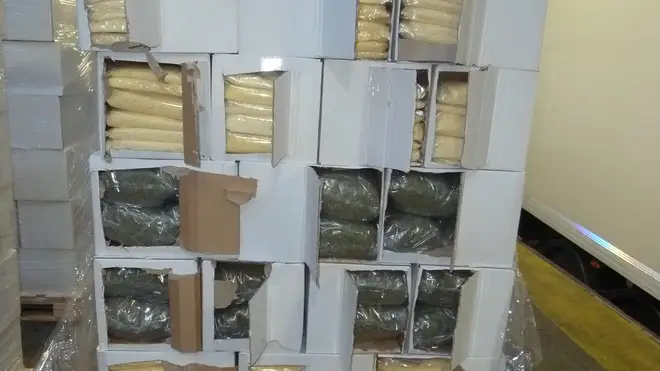
Matthew Wright 7am - 10am
1 November 2019, 06:23

Two Dutch men who were caught hiding half a tonne of cannabis in bags of gone-off pizza cheese have been jailed.
Henrik Ruben, 28, and Dominic Leeman, 30, had tried to smuggle the drugs worth £5m in shipments of grated cheese and salad toppings, the National Crime Agency (NCA) said.
The pair were caught when officers from the UK Border Force intercepted the shipment at Dover in April and June 2016.

Ruben, of Dieren, was jailed at Maidstone Crown Court for six years after he was convicted of conspiring to import drugs.
Leeman, of Arnhem, was also found guilty of the same charge and sentenced to five-and-a-half years in jail.
The NCA said an investigation found the pair were part of a wider organised crime group, and operated two units on the Slough Industrial Estate where the cannabis would be unpacked.
They even planned to repackage the cheese and ship it back to the Netherlands to be used again.
The duo used encrypted phones to communicate, but NCA officers were able to access messages between them.
One text which was exchanged between the organised crime group said: “Do I have to put the old cheese in those boxes the product is delivered in?”
The NCA Branch Commander Martin Grace said had the drugs hit the streets they would have "no doubt funded further criminality on our streets."
Commander Grace said: “This is a significant disruption of an organised crime network who were intent on bringing illegal drugs into the UK.
“The pair thought they could fool us by disguising cannabis in food shipments and giving fabricated stories to border officials. But we are ready and have tools in place to disrupt drug supply and distribution.
“The cannabis had a street value of more than £5million, which no doubt would have funded further criminality on our streets. We take all importations of illegal drugs seriously. Drug smugglers perpetuate serious violence which spreads throughout supply chains and puts innocent members of the public at risk."